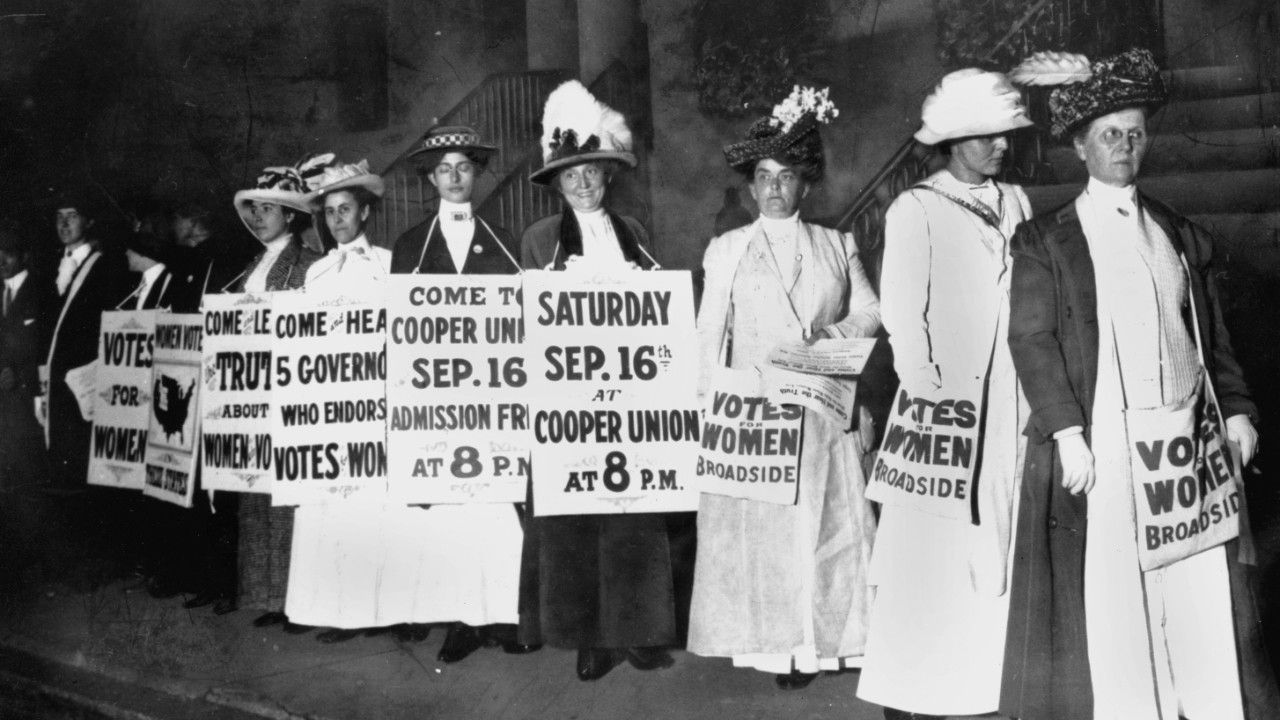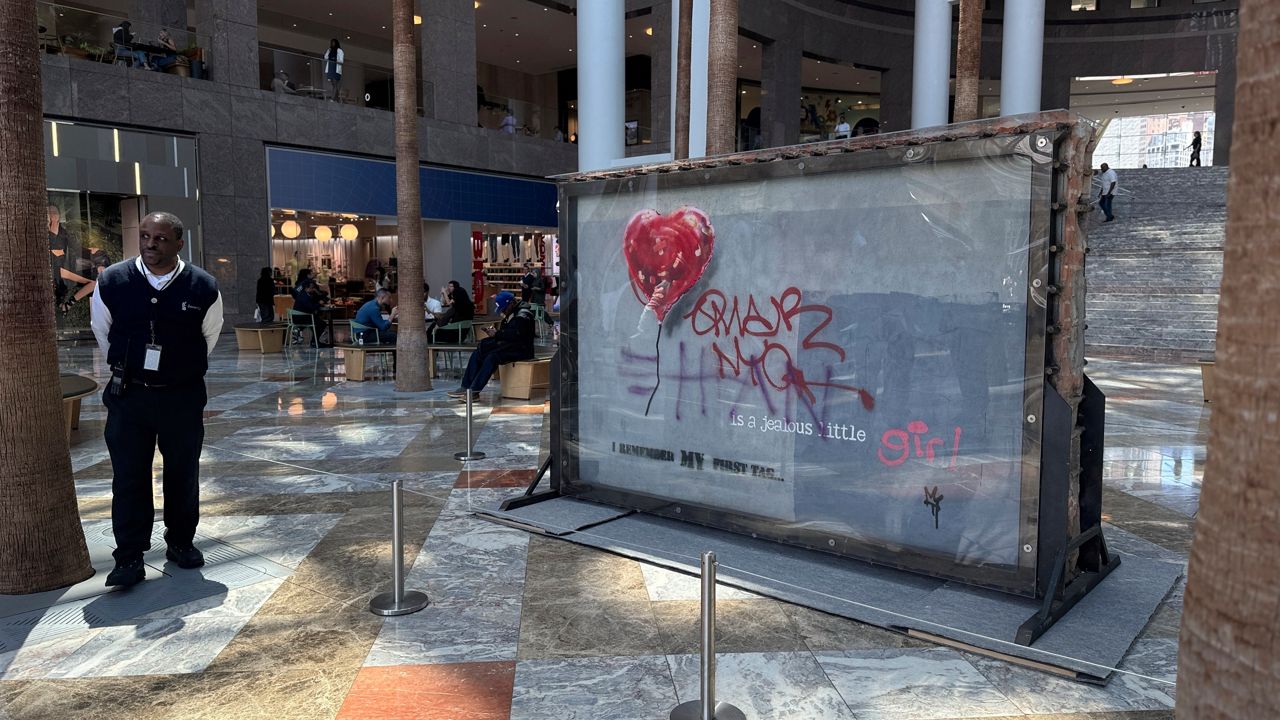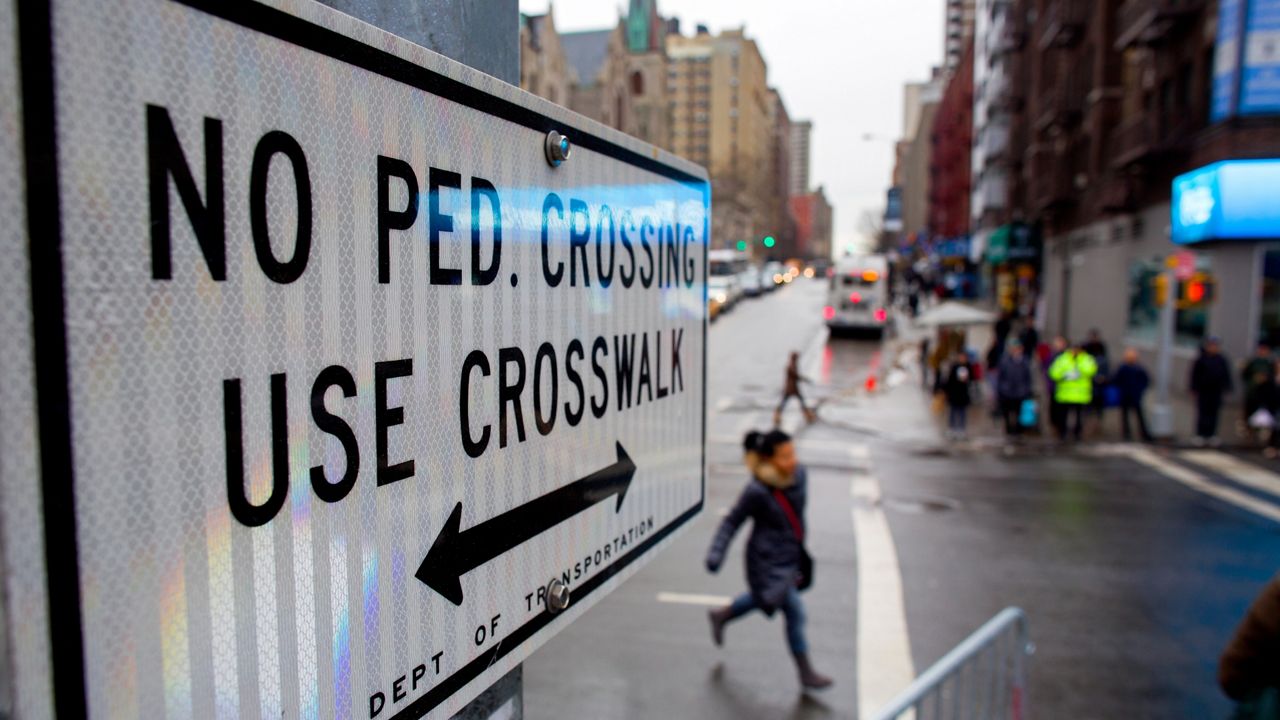A century ago, the 19th Amendment was ratified and became part of the U.S. Constitution. It granted women the right to vote. Well, white women.
To commemorate the centennial, New York’s Lieutenant Governor Kathy Hochul and Rep. Carolyn Maloney put together a panel of high-profile women’s rights, racial justice and LGBTQ rights activists to talk about how much has changed in that century, and how much hasn’t.
Hosted by NY1 anchor Cheryl Wills, the panel included Carol Jenkins, CEO of the ERA Coalition, Judith Kasen-Windsor of the Edie Windsor and Thea Spyer Foundation and Lizzie Tijani from Strategy for Black Lives.
The amendment reads: “The right of citizens of the United States to vote shall not be denied or abridged by the United States or any state on account of sex."
It was a hard-fought battle, decades in the making. But it would take Black women, other women of color and Indigenous women decades more to achieve the same right.
The discussion started with a stark reminder from Wills that, for many women voters, and for voters of color, there is still much work to be done.
“As a woman of color I feel it’s important to note that Black women were forced to wait five decades after the passage of the 19th Amendment to secure the right to vote,” she said. “The 19th Amendment did not stop states from voter suppression, with poll taxes and literacy tests and, tragically, it did not confront the violence and hate that men and women of color faced when they dared to exercise their constitutional rights.”
The fear is that not a lot has changed.
“I can’t help but remember that my own mother was born without the right to vote,” Maloney said. “And our founding mothers were so brilliant. They had two goals: One was to gain the right to vote from which would come all power, and the second was to put us into the constitution. I read one of their papers that said, if you don’t watch out we’ll be back here in Seneca Falls in 150 years and still not be in the constitution. Well, guess what? We’re still not in the constitution.”
Since 1972, the day has been designated “Women’s Equality Day" a reminder that, though it was proposed in 1923, the U.S. still does not have an Equal Rights Amendment. The last of the 38 states needed to ratify the bill, Virginia, only came on board earlier this year, 28 years after the deadline for ratification passed. That deadline has since been struck down.
But, the panelists agreed, the battle for equal rights has expanded exponentially, to include many who were left out of the discussion a century ago.
“Let’s acknowledge that Black women weren’t welcome at many of the rallies for women’s suffrage,” Lt. Governor Hochul, who is also the president of the Women’s Suffrage Anniversary Commemoration Commission, said. “That was something that was glossed over in the telling of the history. So right now, we have to look to the future and ask ourselves, if there’s a celebration of the bicentennial of women’s suffrage, what will they say about the women of our time? "
According to Jenkins, earning the right to vote was a good start. But this is now a fight to change the system.
“What we do know is that voting is not the end of the story,” she said. “We’ve been voting for 100 years and we have not approached the equality that we would like to enjoy in this country and it’s because in these days when we talk about systemic racism and systemic sexism, you cannot get any more systemic than the constitution. That is the system. It explains who has rights and who has privileges and at this point one can still be discriminated against based on one’s sex.”
Judith Kasen-Windsor knows all too well what it means to fight for protection under the law. Her late wife, Edie Windsor, was a hero of the LGBTQ movement who battled the federal government in a landmark case that ended a part of the Defense of Marriage Act in 2013, and resulted in the rights and privileges of marriage to be extended to members of the LGBTQ community.
She says, even though the Supreme Court recently decided “sex” also meant gender, it’s still hard to fathom that our rights are so fragile.
“To be in 2020 and still wonder whether the Supreme Court will say a gay, lesbian, bisexual, transgender can rent an apartment or have a job, it’s outrageous,” she said. “It’s really, really outrageous at this point. Human rights to me are human rights and it’s just outrageous.”
For Lizzie Tijani, the phrase “women’s rights are human rights” takes on a whole new meaning when it pertains to Black women.
“When you look at it from the micro level we’re still facing injustices and we still don’t have that equity,” she said. “There’s still that pay gap for Black women. We get paid 62 cents compared to the dollar of a non-Hispanic man. And women of color are still subjected to stereotypes and Black women and women of color still do not have equal representation. But I think that when you talk about legislative change you have to talk about maternal mortality. That’s definitely an issue within the Black community. Black women over the age of thirty are four to five times more likely to die when they’re pregnant or after they give birth.”
And, she says, that inequality may be most pronounced when you talk about criminal justice and Black girls.
“We need to end the criminalization of Black girls because that starts in schools,” she said. “70% of Black female students are removed from the classroom or penalized compared to 37% of white female students,” she said. And if you look at research some of the reasons why they’re being removed from classrooms are because they’re not wearing the right dress code or their teachers thought they were being rude or they’re being suspended. I think if you start when they’re younger I think that will make a huge difference. And we see that Breonna Taylor died before George Floyd and she has not received any justice. It is really sad but it just shows that we have this systemic issue that prevents a woman of color or women in general from receiving justice.”
The common thread for everyone on the panel was “systemic". They agreed that equality would never be guaranteed until “equal rights” is a phrase enshrined in the constitution.
“I will never forget being there at the Kavanaugh hearings knowing the die was cast,” Maloney said. “We knew we did not have the votes to keep him off the Supreme Court, and it finally occurred to me in an “aha” moment, we may not be able to keep him off the Supreme Court, or control what he does on the Supreme Court, but we can control the underlying document Supreme Court justices interpret. That‘s why we must let all women into the constitution. That is why ratifying, passing getting in any way shape or form the ERA into the constitution matters. We heard it from our founding mothers. They said, get the vote from which all power comes and get it into the constitution so we can be protected and empowered and that is my goal and my north star.”
Hochul added, “we are calling on all of us who stand on their shoulders to take the torch that has been passed to us. It’s now in our hands and we hope we’ll make it glow brighter before we pass it to the next generation. This is not just a day, it’s a movement and we must make sure this movement goes on, not just for this 24-hour period, but 365 days a year. The march goes on and on.”








